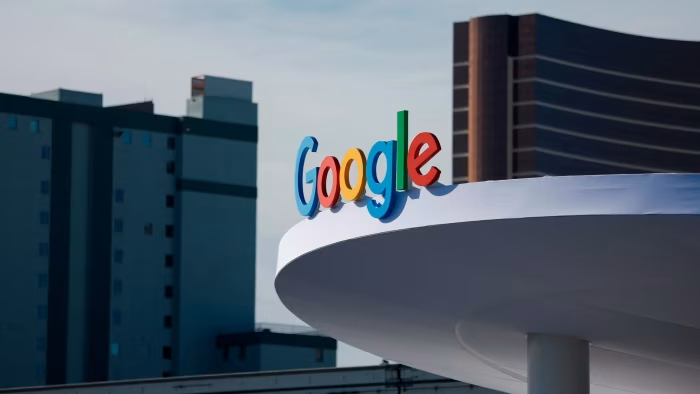Stay informed with free updates
Simply sign up to the Technology sector myFT Digest — delivered directly to your inbox.
Here’s a number to conjure with: $1.3tn. That’s the amount of market capitalisation Google parent Alphabet has added since September 2 — and it is equivalent to nearly double the combined gain in the rest of the so-called Magnificent 7.
Why that date in particular? Because it’s when a US antitrust judge decided Google’s monopoly was no longer a potent threat in the age of AI. That decision left the company free to flex its muscles. With Alphabet’s market capitalisation edging closer to a colossal $4tn, the rest may soon be history.
Google’s monopoly in online search — the judge did at least call it what it is — did indeed seem at risk for a while. The launch of ChatGPT in late 2022 threatened to drain the moat Google had created around itself. Analysts at Wells Fargo estimated in 2023 that the shift to “conversational” search, with inherently lower margins, could wipe 14 per cent off Alphabet’s operating profit.
The reality has proved different. Users are searching more on Google, not less, and monetisation seems to be intact. It’s something like the principle of “induced demand” that explains why building more roads generates more traffic. Meanwhile, ChatGPT has, in recent months, handed back some of its market share gains to its larger rival.
Last week, Google slew another foe: the belief that it’s an AI also-ran. The launch of its Gemini 3 model last Tuesday showed a clean pair of heels to OpenAI’s offerings on a range of so-called benchmarking tests, including reading what’s on a user’s screen, a key competency for creating AI “agents”. Salesforce chief Marc Benioff, a ChatGPT user, says he tried Google’s new offering and is “not going back”.

There are three reasons Google has been able to make this leap. One is that it houses some of the world’s most sophisticated research capabilities, thanks mostly to UK-based DeepMind, which it bought over a decade ago. A second reason is that Google is training its models on chips of its own making. Rivals still depend on whatever allocation of they can get from Nvidia, which dominates AI chips as Google dominates search.
The third, and biggest reason? It’s a monopolist, and with that comes monopoly profit. Alphabet has made around $330bn in free cash flow over the past five years, according to LSEG. That gives it enormous leeway to invest for years in things that don’t obviously — and may never — produce revenue. Few companies can so easily accommodate massive spending on things peripheral to their core business. Certainly not OpenAI, which may make $20bn of revenue this year, if it is lucky.
The bigger Google gets, the stronger. As its cloud business grows, now making up nearly a fifth of revenue, it becomes less vulnerable to hiccups in global advertising spend. Future revenue streams could come from selling its chips to other AI combatants like Meta Platforms. Some features of Gemini 3 suggest the company will become a stronger contender in the enterprise software market too.
Of course, being huge on its own isn’t enough to sustain Google’s supremacy. It wouldn’t be where it is without smart ideas and products that people actually want to use. But the company’s impending $4tn valuation sends a strong message that anyone who thought AI would speed the end of tech’s most famous monopoly got it dead wrong.
john.foley@ft.com
